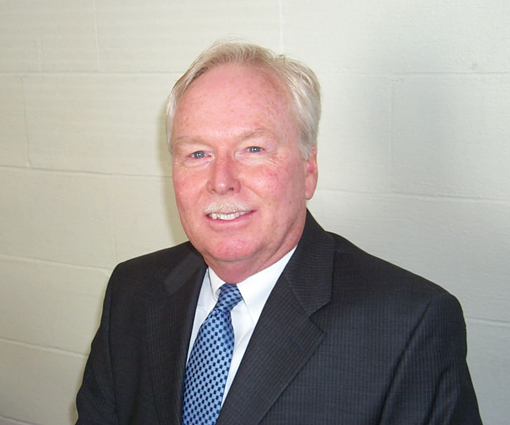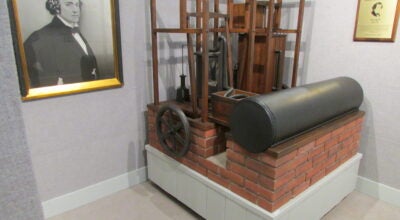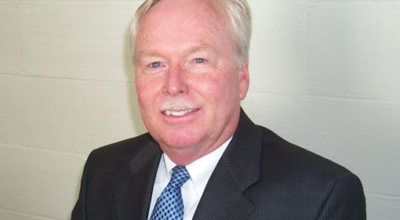Why newspapers matter to newspaper people
Published 6:18 am Friday, May 10, 2013
The newspaper belongs to the community.
Your friends and neighbors who work at your local newspaper believe what we do everyday is more than a job. We believe what we do matters. That is why we love what we do and that is why we love newspapers.
It is easy to forget when facing the pressures of deadline, or just the daily grind of our jobs and all that comes with that — but it is important that we not forget the reasons why we do what we do.
The moment we start thinking of ourselves as just a business, is the very moment we lose our relevancy and our importance to a community.
Sure, as much as it pains the journalist to admit it, newspapers are a business, but if we are to remain viable, we must be much more.
Printer’s ink courses through our veins because our profession is more of a calling.
At some point, we were called by the First Amendment.
We were called by the voices of the disenfranchised.
We were called by principles and ethics.
We were called to serve taxpayers, workers, small business owners, mothers and fathers, voters and ordinary citizens.
We work every day to give those citizens a voice, to empower them.
We hold government accountable because at our very core we believe that government belongs to the governed and not to the governing.
We embrace the rich traditions of newspapers and understand why they matter to a community.
We embrace the newspaper’s role as the Fourth Estate.
That is why we embrace our role as a public watchdog.
We are not the enemy of government — rather, we are the champions of citizens — of our community.
We know if newspapers do not stand up for citizens and protect the rights of free speech and the rights of access to government, then no one will.
We work in our communities each day to build a culture and incubate an environment where those elected feel accountable to those who elected them.
Elected officials should never be surprised or irritated when citizens, or the newspaper, question their judgment, their words or their decisions.
Citizens have every right to question everything government does, whether elected officials like it or not. Newspapers should be the most powerful advocate citizens have and be their open forum for a redress of grievances.
Ours is a representative form of government.
In fact, it is this distinctive nature of our constitutional republic that distinguishes us as a nation and provides for a more open and free society.
It is absolutely impossible to please all the people all the time.
That is true, of course, because all people do not always agree on all things.
That is why we elect representatives.
The electorate should never be disregarded and citizen input should always be embraced, even when citizens disagree with the governing.
It would be irresponsible for the local newspaper to not champion the freedom of expression and to not reflect the views of the public in its coverage and commentary.
Any newspaper that represents the interests of the governing, more than the interests of the governed, is not worth the paper it is printed on or the ink that fills its pages.
We may not always agree with outspoken citizens or defend what they say, but we should defend with all our might, all our ink and all our paper their right to say it.
According to historian Thomas Carlyle, Irish statesman and author Edmund Burke (1729-1797) said, “there were three Estates in Parliament, but in the Reporters Gallery yonder, there sat a Fourth Estate more important far than they all” (Heroes and Hero Worship in History, 1841).
Though in many places reporters have reduced themselves to simply being a mouthpiece for local government, reporting what officials want them to report and hiding what they don’t, a community and a democracy is best served when the newspaper provides a forum for checks and balances as the Fourth Estate of government.
Great newspapers, relevant newspapers that are embraced by their communities and consequently profitable, growing newspapers have not forgotten that role and have not abandoned these values.
When local government makes decisions about how money is being spent, for example, it is critical those elected officials understand they are not spending their own money. It is critical the local newspaper reminds them.
It is the public’s money and citizens have every right to know how their money is being spent. The newspaper must be the community’s eyes, ears and voice.
Elected officials are not merely elected to represent the people who agree with them. They are elected to represent the interests of all citizens and that cannot be done if they do not at least listen to and respect everyone, those with whom they agree and those with whom they disagree.
Newspapers should take the role as the Fourth Estate seriously and vigorously report and comment in ways that hold government in check.
After a day of being vilified by some elected official who is displeased with a report or an editorial, the most refreshing words for a journalist come when a citizen stops by just to say, “Thank you for giving us a voice. Thank you for empowering us. Thank you for telling us the truth.”
Newspapers, the good ones, still make a difference in the communities they serve.
The bad ones may print pages, post articles and sell advertisements, but they do nothing to champion citizens.
Burke also said, “All that is necessary for the triumph of evil is that good men do nothing.”
As community newspapers we have the daily, or weekly, opportunity to do something — something that matters.
What we do, if we do it right, matters and will continue to matter day after day, week after week, month after month, year after year. As long as people still read, still care about their quality of life and still pay taxes, newspapers that retain their role as the Fourth Estate will remain relevant and will matter to the communities we serve.
Jim Zachary is a newspaper veteran who has championed government transparency. He is the editor of the Clayton News Daily and the Henry Daily Herald





